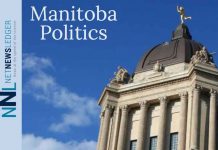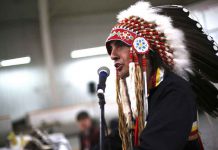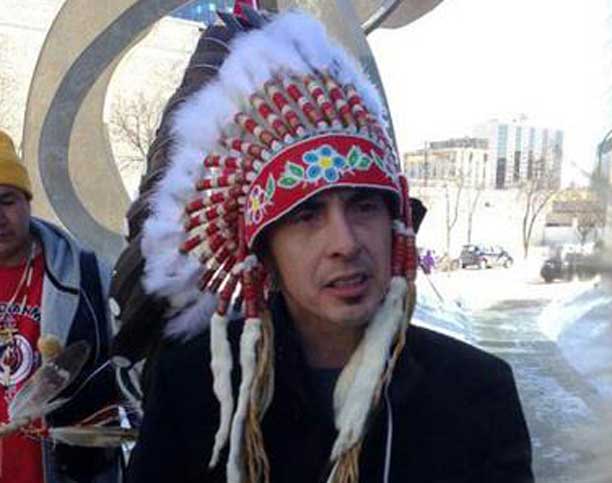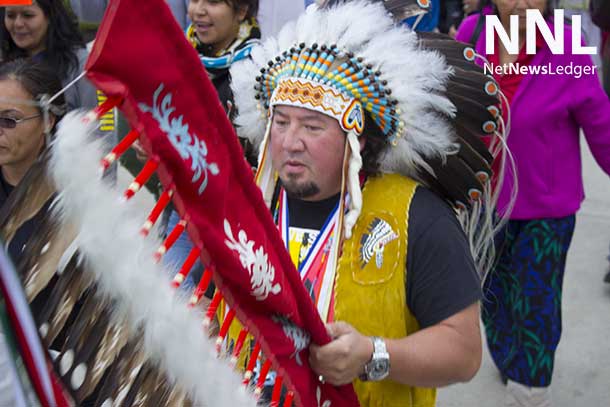
TREATY ONE TERRITORY – In these days of industrial development and the Conservative plan for a 500 billion dollar expansion of industry and resources, it is time for the treaty people to start speaking and acting…
In recent years, one of our elders told us that when treaty was agreed to, it was agreed under the light of day. This means that our spokespeople were present with the people in an open dialogue. A great degree of discussion and reflection occurred before negotiations advanced on specific heads of treaty subject matter. To me, this was the original standard of free, prior and informed consent that contemporary nation state governments are terrified of because they know it is the truest form of expression by indigenous peoples. When I speak of process, I speak nothing to the spiritual nature of the decision making process. Thats for another time and place.
We aren’t following the treaty based standards anymore as much as we should be. I believe that we did for some time after treaty, but in time, we have largely abandoned the community consultation standards that were present at treaty time. There are some communities who are practicing the old way of community consultation based on treaty standards. These communities are the ones that are taking stands and oftentimes being vilified in the media and amongst colonial governments for not collaborating. Some of us have also been referred to as ‘rogues’ amongst colonial ministers.
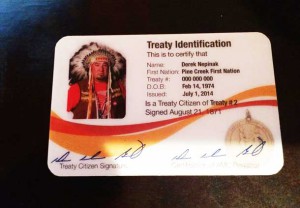
Today we frame the rationale for consultation around notions of constitutional obligations and supreme court judgements. We raise the issue of consultation only when someone has failed to consult with us an acceptable standard. Back in the days of treaty time, it was a simple matter of respecting your family, your neighbour and your community. It seems much simpler when considered in the historical sense. It was not only simpler, but much more powerful and endearing to the hearts of our families because it was the last time that we were truly free.
Today, I receive many messages from people who tell me that the Chief and Council are making plans, signing contracts, making deals behind their backs. Deals that harm the community, or benefit only a few. I receive these kinds of comments daily. In some cases, Im accused of not caring that this is happening or not having the power to change it. This is hurtful to me, but it is part of the consequence of having a public profile and ensuring a broad base for messaging to be heard. The truth of the matter is that I cannot push community leadership to be respectful to membership. That is a standard that is beyond my power to enforce. With that said, the most powerful person in the community is not the Chief, nor the council. Its the band member who demands to be respected and informed thoroughly through respectful inclusion.
Time and time again, I have done my part to open discussions where respectful standards of consultation might find their way to renewal. This is part of the entire intent of the treaty dialogues we have been having for several years now around the treaty alliance. I believe that my contribution to the political tables of the day, the treaty tables (political and non-political), is to promote respectful places of inclusion and discussion about treaty standards of consultation. This has not been easy because a great number of our people are not living from a context of freedom under treaty.
I believe that in order to change the standard, we must move in unison and together. Although a single Chief and Council might set the standard or become the example of inspired and renewed treaty standards of consultation, it will take a much broader base of our community to adopt these principles of consultation by ensuring that they are implemented in your own communities. With that said, your community in treaty, is my community too. This is why the treaty alliance is real and true. Its inarguable that it will look different from one table to the next, but its truth is undeniable.
In the coming weeks, it will be time to come together and have a treaty talk.
Grand Chief Derek Nepinak
Assembly of Manitoba Chiefs


